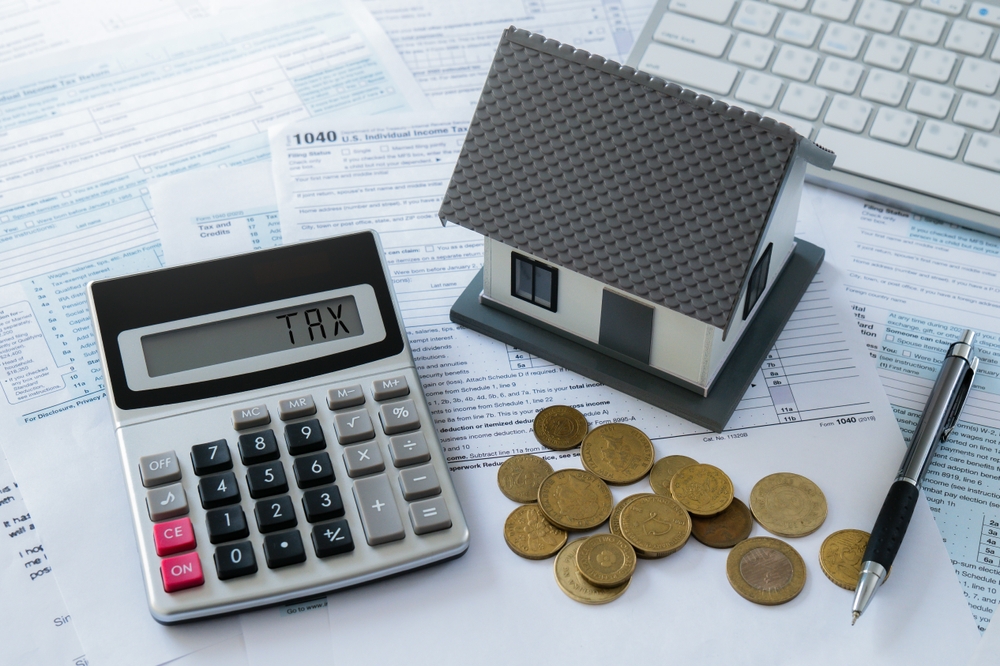The property tax was supposed to remain neutral, but many municipalities in Lower Saxony are significantly raising their assessment rates. Owners and tenants are now paying significantly more, even though the reform originally promised no hidden tax increase. Smaller municipalities in particular are using the adjustment to stabilize their budgets, which is fueling criticism of the reform. (welt: 21.08.25)
Every third municipality increases property tax
According to the Taxpayers’ Association, 298 municipalities in Lower Saxony have exceeded the revenue-neutral assessment rate. This affects 32 percent of cities and municipalities. “As a result, both homeowners and property owners, as well as tenants, in many places have to pay significantly higher property taxes than in the previous year,” several associations said in a statement. Housing costs are thus continuing to rise, even though utility costs in particular are already burdening many households.

Real estate values also play a role. The nationwide revaluation is increasing property taxes for some properties while reducing the tax burden on others. Nevertheless, experts are seeing a significant wave of increases. “What’s striking is that property owners are being hit harder, especially in small communities with fewer than 3,000 residents,” explains Jan Vermöhlen of the Taxpayers’ Association.
Wietzendorf as an example of rising housing costs
The focus is on Wietzendorf in the Lüneburg Heath. Here, the neutral assessment rate was 260 points, but the actual rate was 580. City Treasurer Inga Hestermann emphasizes that the reform is not the problem. “Costs have literally exploded in the past year, and this is essentially solely due to the additional responsibilities assigned to us by state policy.”
Daycare funding, integration measures, and rising personnel costs are driving up spending. In addition, the district is demanding higher levies, which places an additional burden on the municipality. Four of the ten largest increases are in the Heidekreis district, and others in the Oldenburg district. This demonstrates that not only property owners but also tenants are suffering from the increased housing costs and utility costs.
Criticism of lack of transparency
The German Housing Association considers the politicians’ promises to have failed. Director Susanne Schmitt concludes: “Revenue neutrality was a fairy tale.” The problem lies in the opaque procedures and unclear specifications. Without central registers like those in North Rhine-Westphalia, a veritable proliferation of property taxes developed in Lower Saxony.
Vermöhlen adds: “In particular, citizens who are expected to pay higher property taxes this year than last year cannot easily determine whether the additional burden results from the change in the calculation method or a tax increase by their municipality.” Thus, the reform also affects people who are already struggling with rising utility costs and high housing costs.
Municipal finances in crisis mode
In addition to the debate surrounding property taxes, municipalities are increasingly burdened with new tasks. Leading associations are warning of a “dramatic financial crisis.” Social spending, in particular, is rising by around ten percent annually. Without additional revenue, cuts to infrastructure, daycare centers, and schools are threatened.
Christian Schuchardt of the German Association of Cities describes the pressure: “Because the local financial situation has now deteriorated so dramatically, it cannot be ruled out that numerous cities, in their desperation, will see themselves forced to increase property tax revenue in the coming years, regardless of the amendment to the property tax.”
Inconsistent picture nationwide
Figures from the Federal Statistical Office show a 3.8 percent increase in property tax revenue for 2024. This brought €15.6 billion into municipal coffers. At the federal level, the situation remains relatively stable. However, housing costs continue to explode in many municipalities.
Property values, assessment rates, utility costs, and the general financial crisis of municipalities are combining to create a critical development. For both owners and tenants, the property tax reform in Lower Saxony means one thing above all: rising costs and growing dissatisfaction.
